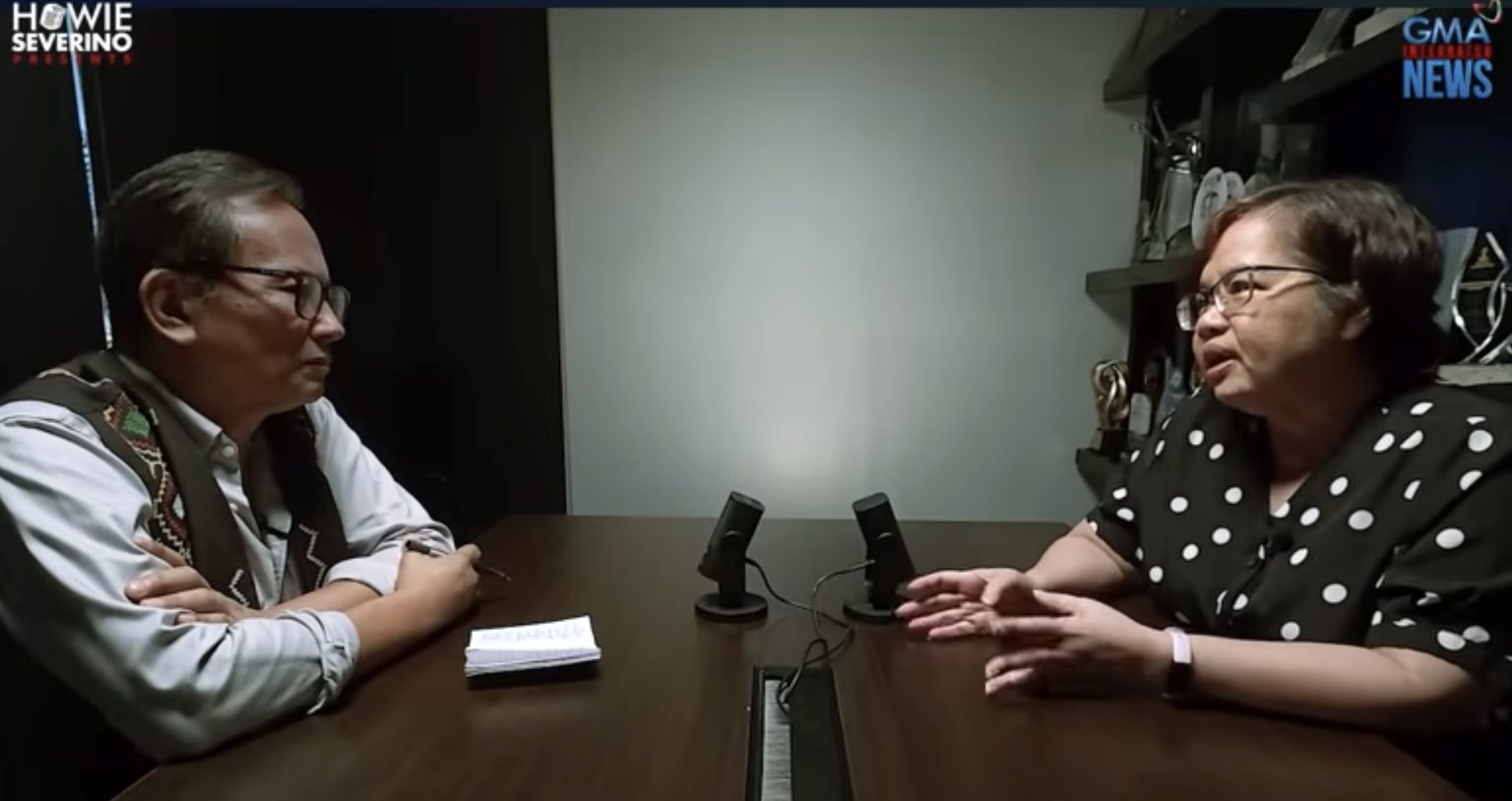Listen to the article
In the first installment of “Howie Severino Presents,” a new series examining the growing threat of foreign influence and disinformation in online spaces, University of the Philippines journalism professor Rachel Khan sheds light on a concerning global phenomenon affecting information ecosystems worldwide.
The series delves into what experts call Foreign Information Manipulation and Interference (FIMI), a sophisticated form of disinformation with international origins and potentially far-reaching consequences for local political landscapes.
“It basically means that there are external influences or influence operators outside the country,” explains Khan, a respected authority on media literacy and disinformation. “It could be a state operation or it could be individuals or private citizens that are not part… Basically, it’s external sources of disinformation and it’s coordinated.”
Unlike isolated instances of misinformation from domestic sources, FIMI represents a systematic campaign designed to manipulate public opinion. Khan distinguishes this from individual influencers or bloggers who might spread false information, emphasizing that FIMI operates on a much larger scale.
“It’s bigger because it’s a campaign among either several bloggers outside the country or really institutions that either produce inauthentic, coordinated disinformation or have influencers, individual influencers that want to manipulate the local public sphere,” she notes.
The complexity of FIMI lies not only in its international nature but also in the challenge of identifying its true origins. While the external source might be detectable, the actual sponsors behind such campaigns often remain obscured.
“The thing about FIMI, you know that it’s coming from outside, but you don’t know whether it’s operated or the source is the state, an outside state or a local paying an outside provider,” Khan explains. This ambiguity creates significant challenges for researchers, journalists, and government agencies attempting to combat such influence operations.
The professor illustrates this complexity with a hypothetical scenario that has become increasingly common across many democracies: “If I was a local politician and I hired a company in India, you’d have these trolls coming from the outside. And that can be traced that it’s coming from the outside. But who’s behind it? It’s hard to say.”
This pattern has been observed in numerous countries where political actors employ foreign digital mercenaries to influence domestic discourse while maintaining plausible deniability. The Philippines, with its high social media usage rates and upcoming electoral cycles, represents a particularly vulnerable target for such operations.
Experts like Khan have documented an escalation in foreign disinformation campaigns targeting Southeast Asian nations in recent years, often coinciding with politically sensitive periods such as elections or international disputes.
Addressing the technical challenges of tracing these operations, Khan emphasizes the need for collaboration between researchers, government agencies, and technology platforms. “That’s where I think you will really need a collaboration with the platforms to trace the source… Is it coming from a private entity or a state entity? That’s where you need the technology that’s beyond a normal fact checker like myself.”
This call for cooperation highlights the evolving nature of the fight against disinformation, which increasingly requires specialized tools and cross-sector partnerships to identify and counter sophisticated influence operations.
The “Howie Severino Presents” series comes at a critical juncture for the Philippines and many other nations grappling with information integrity. As social media platforms continue to serve as primary news sources for many citizens, the vulnerability to foreign manipulation presents significant challenges to democratic processes and national security.
Future episodes of the series are expected to examine specific case studies of FIMI in the Philippines and explore potential regulatory and educational responses to this growing threat to information ecosystems.
Fact Checker
Verify the accuracy of this article using The Disinformation Commission analysis and real-time sources.




11 Comments
Interesting insights on the global threat of foreign disinformation campaigns. It’s concerning how sophisticated these manipulation efforts can be in shaping public opinion online. Monitoring and addressing FIMI is crucial for maintaining the integrity of information ecosystems.
I agree, the scale and coordination of these foreign influence operations is quite alarming. Strengthening media literacy and fact-checking efforts will be key to combating the spread of disinformation.
This issue of foreign interference in online spaces is so multifaceted. I wonder what specific policy or technological solutions could help mitigate the risks of FIMI in a practical and effective way. Curious to hear expert perspectives on the most promising approaches.
That’s a great question. Policymakers and tech companies will likely need to take a multi-pronged approach, combining enhanced transparency, content moderation, and public education initiatives to address this challenge.
The systematic nature of FIMI is troubling. These foreign influence operations represent a serious threat to the integrity of online information ecosystems. Strengthening our collective resilience through media literacy and collaborative policy responses is critical.
I agree, this issue requires a comprehensive, multi-stakeholder approach. Policymakers, tech companies, and civil society must work together to develop effective solutions for combating foreign disinformation campaigns.
This article highlights the need for greater awareness and understanding of foreign information manipulation tactics. Equipping the public with media literacy skills is crucial to combat the spread of FIMI-driven disinformation.
Disinformation campaigns from abroad can have serious consequences for local politics and public discourse. It’s worrying to see the scale of these coordinated influence operations. Rigorous fact-checking and media literacy efforts seem critical to combat FIMI.
Fascinating insights on the growing global phenomenon of foreign disinformation campaigns. The strategic, coordinated nature of FIMI is quite concerning. Robust fact-checking, transparency, and public education initiatives will be key to addressing this challenge.
The insights from Professor Khan on FIMI are quite sobering. The strategic, large-scale nature of these foreign disinformation campaigns is alarming. Strengthening our collective resilience to manipulation and misinformation will be an ongoing challenge.
I agree, this is a complex issue that will require a sustained, multi-stakeholder effort. Policymakers, tech companies, journalists, and the public all have important roles to play in addressing the threat of foreign influence operations.